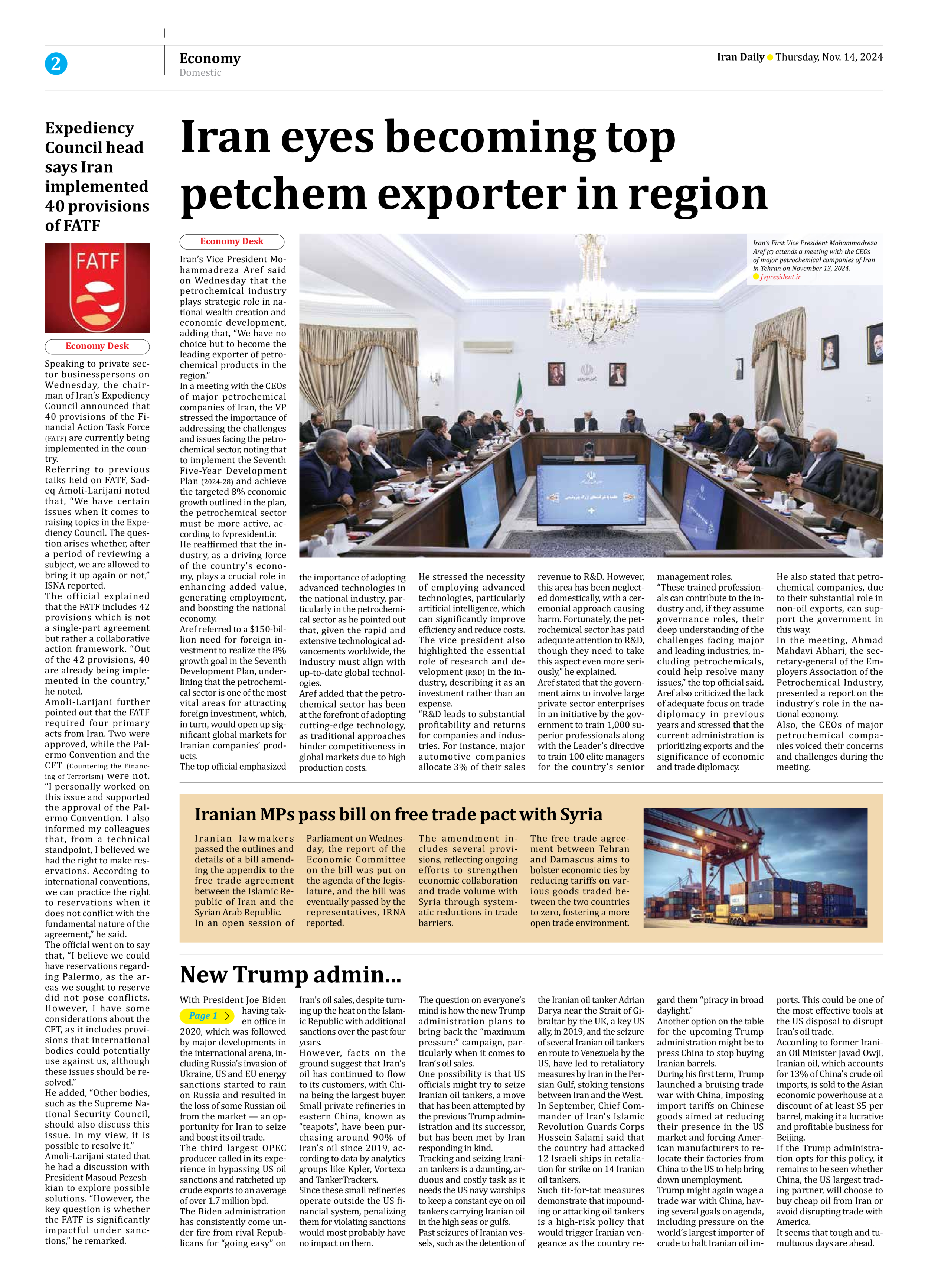
Expediency Council head says Iran implemented 40 provisions of FATF
Speaking to private sector businesspersons on Wednesday, the chairman of Iran’s Expediency Council announced that 40 provisions of the Financial Action Task Force (FATF) are currently being implemented in the country.
Referring to previous talks held on FATF, Sadeq Amoli-Larijani noted that, “We have certain issues when it comes to raising topics in the Expediency Council. The question arises whether, after a period of reviewing a subject, we are allowed to bring it up again or not,” ISNA reported.
The official explained that the FATF includes 42 provisions which is not a single-part agreement but rather a collaborative action framework. “Out of the 42 provisions, 40 are already being implemented in the country,” he noted.
Amoli-Larijani further pointed out that the FATF required four primary acts from Iran. Two were approved, while the Palermo Convention and the CFT (Countering the Financing of Terrorism) were not. “I personally worked on this issue and supported the approval of the Palermo Convention. I also informed my colleagues that, from a technical standpoint, I believed we had the right to make reservations. According to international conventions, we can practice the right to reservations when it does not conflict with the fundamental nature of the agreement,” he said.
The official went on to say that, “I believe we could have reservations regarding Palermo, as the areas we sought to reserve did not pose conflicts. However, I have some considerations about the CFT, as it includes provisions that international bodies could potentially use against us, although these issues should be resolved.”
He added, “Other bodies, such as the Supreme National Security Council, should also discuss this issue. In my view, it is possible to resolve it.”
Amoli-Larijani stated that he had a discussion with President Masoud Pezeshkian to explore possible solutions. “However, the key question is whether the FATF is significantly impactful under sanctions,” he remarked.







